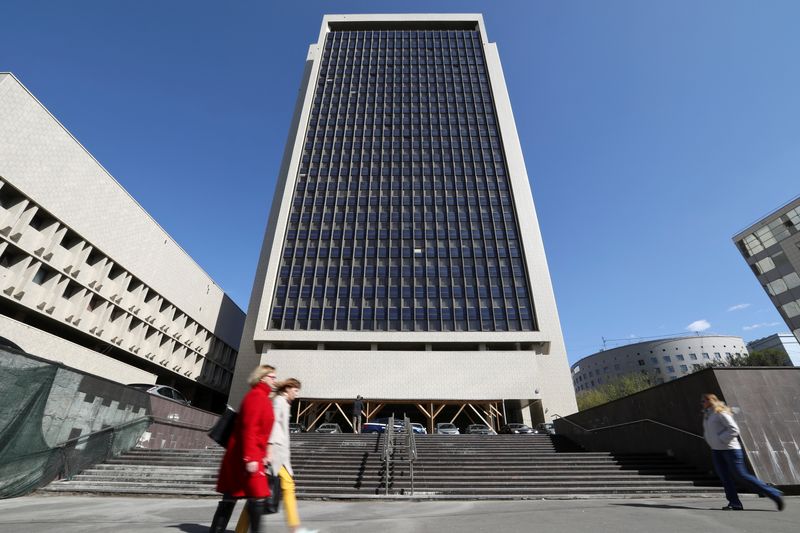By Anastasia Lyrchikova
MOSCOW (Reuters) -Russia’s Energy Ministry has proposed limiting dividend payouts by electricity companies in order to free up funds for a major infrastructure upgrade, according to a draft law seen by Reuters.
The proposed move would apply to all Russian companies involved in electricity generation, transmission, and distribution.The companies currently set their own dividends, and typically borrow to finance investment. But the new law would oblige them to prioritise investment over dividends in the allocation of their profits, an industry source and a source familiar with the drafting process said.
“There are large-scale plans for new power generation construction in Russia, and it makes sense to redirect part of the dividends toward these new projects,” one of the sources told Reuters.
Officials, regulators, and energy companies are exploring new mechanisms to attract investment for energy construction projects through 2042 against a background of high interest rates, limited access to funding, and restrictions on equipment imports because of Western sanctions against Russia.
The projects are seen as necessary in order to modernize the power system and prevent potential shortages amid rising electricity demand.
Russia plans to build nearly 90 gigawatts of new capacity by 2042, which, along with grid upgrades, is expected to cost around 40 trillion roubles ($492 billion).
In 2008, Russia completed the reform of Soviet-era power monopoly RAO UES, splitting it by business type and privatizing most thermal generation companies to attract investment for a first wave of upgrades to the ageing power system.
Dispatching and grid operations remained state-controlled, although shares of most grid companies are listed, and many distribution network companies have a large free float and pay dividends.
The largest investors in the sector — grid operator Rosseti, Rushydro, and companies in the Gazprom Energoholding group — in practice pay little to no dividends.
InterRAO, the sole operator for Russia’s electricity imports and exports, pays out 25% of its profits in dividends, while some retail and grid companies also make payouts to shareholders.
Dmitry Bulgakov, an analyst at investment company BCS, said the proposed change appeared unfriendly to non-state shareholders, particularly minority shareholders.
“Refusing to pay dividends or limiting the ability to pay them is a negative for companies in the sector. We are not changing our valuation or outlook on the stocks for now, but we will monitor developments,” he said.
